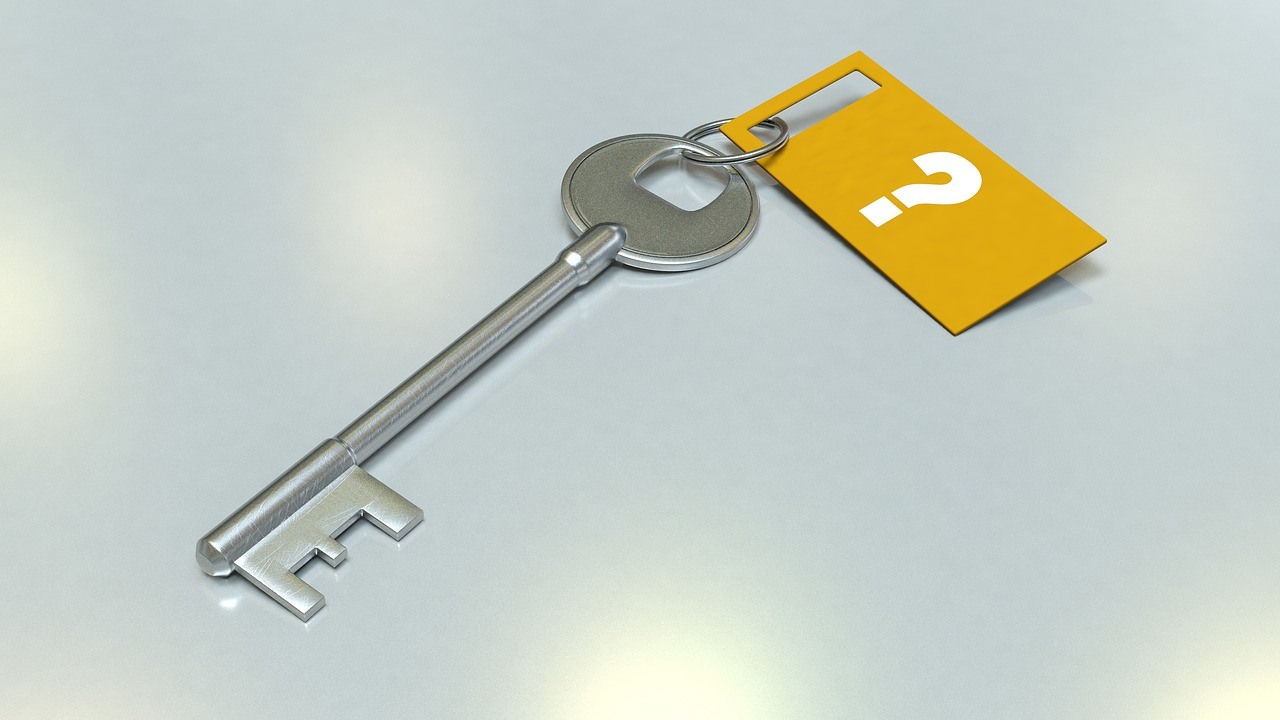
6% VAT on energy, extending the social tariff: what are the latest measures for the sector?
In mid-February 2022, the government decided to reduce the VAT on electricity bills in order to counter the dramatic rise in energy prices, lowering it from 21% to 6% until the new year. The same decision was taken for gas in mid-March 2022. In addition, the expansion of the social tariff to include certain consumer profiles had also been extended. How much could Belgian households save as a result of these changes? When do these measures stop?
An in-depth look at the increase in energy prices
It’s no surprise that energy prices have been on the rise since the last quarter of 2021. If we look at the dashboards produced by the CREG (the Belgian energy regulator), electricity bills have risen from €1,017.50 to €2,119.72 in a year*, an increase of 108.3%. Gas bills, meanwhile, have risen by a staggering 71.6% over the same period, from €1,739.29 to €2,984.78*.
There are a number of reasons for this increase: a major geopolitical conflict between Ukraine and Russia which still rages on, the post-pandemic economic recovery, a reduction in the gas reserves on the European continent, and the increase in the cost per tonne of CO2.
To compensate for this increase, the government had already taken the initiative and, on 1 January 2022, implemented several measures aimed at helping households. These included expanding the social tariff to include various categories of consumers. In addition, the federal government set up a Gas-Electricity Fund, enabling the CPAS-OCMW public social welfare centres to offer material support to people who do not qualify for the social tariff.
Which energy supplier suits you best? Find it out with a simulation!
Lastly, the federal contribution appearing on energy bills was replaced by an excise duty. This is a particularly important change since, previously, this part of the bill increased automatically, which is not the case with excise duty. The federal contribution is considered a surcharge on the energy bill, so its amount depends on the quantity of gas and electricity consumed by the end customer. In contrast, excise duty is an indirect tax on consumption or on the use of certain products, so its amount is fixed. Cabinet Minister for Energy Tinne Van Der Straeten thinks that this “freeze” will help reduce the impact of the increase in prices on households’ energy bills.
*Data for September 2021 and September 2022. Since 1 March 2022, the VAT on electricity has been lowered from 21% to 6%, and the same applies for gas since 1 April 2022. Furthermore, stilll in April, the CREG has brought down the average gas consumption of a Belgian household from 23,260 kWh/year to 17,000 kWh/year.
VAT on gas and electricity bills down from 21% to 6%
In an attempt to lessen the impact on Belgian wallets, the government had voted to reduce the VAT on electricity bills, first lowering it from 21% to 6% from 1 March and initially until 30 September 2022. However, for technical and organisational reasons, this measure was only applied to monthly bills from April. FEBEG, the federation of energy suppliers in Belgium, announced in a statement that “the reduction in VAT appears simple to implement, but that is not the case. All the communications to customers and to the authorities need to be altered. Dozens of internal processes need to be modified and tested in detail.”
In mid-March, the KERN select ministerial committee had met again to review some of the decisions it took in February. As a result, the reduction in VAT was also applied to natural gas. This began on 1 April. However, as with electricity, this reduction had, for practical reasons, only be seen on monthly bills from the month following the introduction of the measure.
Discover all the energy suppliers promotions!
Compare electricity and gas prices and switch supplier for free in just a few clicks on Energyprice.be.
Eventually, as the energy crisis seemed set to last, the government decided to extend the 6% VAT reduction on energy first until 31 December 2022, and then until 31 March 2023. However, rumours seemed to indicate that this reduction to 6 % could very well become permanent.
And since 6 February 2023 it is no longer a rumour: from 1 April 2023 on, the VAT will stay at 6 % for electricty and gas. However, this decision is accompanied by a reform of the excise system in order to make up for the loss of income. Unlike VAT, which is a proportional tax, excise duty is fixed and therefore it does not depend on the price of energy. In addition, the government announces that the possible surplus revenue collected through this new excise system will benefit the consumers in the form of lower excise duties on basic consumption. According to the Ministry of Energy, this measure should have an extra 10 to 20 € impact on the monthly energy bill.
But, in practical terms, how has this reduction been reflected in the bill? Looking at a “typical” four-person family (two adults and two children), consuming an average of 3,500 kWh of electricity and 17,000 kWh of gas over the course of a year, the potential savings are around €660 per year (with the average prices in January 2023).
Extending the expanded social tariff until December
In February 2021, the federal government had decided to expand the social tariff to include BIM/BVT recipients. Multiple consumer profiles such as pensioners and single-parental families in financial difficulties and receiving specific benefits, as well as people with gross annual incomes of €20,000 or less then qualified for the measure. The aim of it was to help the most disadvantaged households at the height of the health crisis.
The expanded social tariff had already been extended to March 2022. But, in view of the current economic and energy situation, the government first decided to extend this measure until September 2022, then until 31 December 2022, and finally until 31 March 2023. As a result, almost a million Belgian households qualified for this tariff, in other words almost a fifth of all househoulds in Belgium.
Following the kern agreements of 6 February 2023, it was decided to revert to the classic criteria for social tariff, to which citizens with BIM/BVT status would no longer have access. Initially announced with a gradually decreasing end in the press, the extended social tariff will actually happen in one go: from 1 July 2023 on, the BIM/BVT status will no longer be a sufficient condition to qualify for social tariff on electricity and gas.
Energy vouchers provided
Good news for the entire population! In addition to the reduction in VAT, the federal government has also decided to issue energy vouchers (called a “heating bonus”) to the value of €100.
Little information had been provided on when this voucher would be introduced, but it eventually started being granted to Belgian househoulds in the third week of April 2022.
In practice, this heating bonus takes the form of a one-off deduction from the electricity bills of Belgians who have taken out a residential contract, whether fixed price or variable price. According to the government, applying this reduction to energy bills is the best way to give the bonus to all Belgian households, regardless of their method of heating (electricity, gas, oil or pellets). If, for one reason or another, you have not received the voucher yet, you have until 1 November 2022 to apply on the FPS Economy website.
Empty title
A few months later, at the Kern meeting in mid-September 2022, it was decided to grant an “energy package” for the months of November and December 2022. This measure is intended to support the middle class, excluding beneficiaries of the (expanded) social tariff and consumers with a fixed contract dating from before October 2021. The basic amounts of the allowance have been set at € 61 per month for electricity and € 135 per month for gas, but a levy will be charged on these for income levels above € 62,000 per year and € 125,000 per year for couples.
In practice, these monthly premiums were deducted at once from the energy bill of December. However, it is possible that you have not yet received this aid, even if you meet the above criteria. The reason for this are the delays on the part of the energy suppliers and the FPS Economy. If that is the case for you, you will be able to submit an application on the FPS website from 23 January 2023 onwards.
Shortly afterwards, the government decided to extend the monthly premiums until March 2023. Like the “basic package” for November and December 2022, these will certainly take the form of a single lump sum, deducted from one of the invoices for the months in question. However, the measure has not yet been published in the Belgian official journal and the CREG has not yet sent the necessary budget to the energy suppliers. It is therefore likely that it will be some time before this second “energy package” is granted.
A single, automatic reduction for oil, butane and propane
At its meeting mid-March 2022, KERN also decided to grant a single, automatic reduction for all households which use oil or butane or propane gas for their heating and which received delivery between 15 November 2022 and 31 March 2023. This support will apply retroactively for the whole of 2022. This means that if you have just placed a new order for oil, you will not need to cancel it to obtain this discount. You will receive it during the year regardless of your situation.
The amount of this premium was initially set to be €225, but after another decision of the KERN in September 2022, it was increased to €300. The consumers who had already applied for it will automatically receive the remaining €75. If the application has not been sent yet, it can still be submitted until 30 April 2023.
A pellet premium of €250
In its federal budget for the year 2023, the Belgian government has this time included households who heat with pellets, who had not been included until then. As with oil, butane and propane, Belgians who use pellets for heating will be entitled to a one-off premium of €250 to compensate for the increase in the price of pellets, which almost doubled in the past year.
Compare now all energy suppliers active in Belgium and save money on your bill !
In order to be able to claim the premium, pellets should be your main source of heating (as with pellet boilers). You should also be able to back up your claims, with invoices for instance.
What happens next?
In addition to the changes and extensions mentioned above, the authorities announced a set of other measures:
- Reduce the consumption of federal public buildings for heating and lighting;
- Tax the superprofits from various energy sectors, especially nuclear plants, in order to benefit the middle class;
- Offer the possibility for households to postpone the payment of their mortgage if their energy bills exceed the amount;
- Give the possibility for the self-employed and businesses to defer the payment of taxes and employer contributions, relax the “temporary unemployment” regulations, introduce a moratorium on bankruptcy and reduce the excise duties on electricity and gas to the European minimum in November and December.
No direct cut or cap on energy prices, unfortunately. However, this subject is being discussed in European circles, as this is where strong measures can be adopted. In Belgium, despite the shutdown of the 3rd reactor of the Doel nuclear power plant, it was decided that Doel 4 and Tihange 3 would continue to operate for another 10 years. In addition, the government is negotiating to keep Tihange 2 in activity until the end of winter, despite it being scheduled to shut down on 1 February 2023.
Will all this bring your energy bills back to the level they were in the past? This is not likely in the near future. However, as a consumer, you can act now to limit the increase in your energy bill. The first thing you should do is compare your current contract with the tariffs available on the market at present. You can use our online comparison tool or contact our advisers free of charge on 0800 37 456, from Monday to Friday, 9.00 am to 6.00 pm or on info@energyprice.be.
Did you know that Energyprice.be was the first energy price comparison site to be certified by the CREG? This quality label guarantees that users will receive a clear, intuitive, transparent and user-friendly service.
Contact one of our advisers
Source:
Also read on our blog

COVID-19 has cast a shadow over the stock markets and energy prices are feeling the effects: they are in freefall. For some of you…

The supplier Aeco has announced that it is ceasing operations permanently to avoid bankruptcy as a result of the increase in energ…

What is an automatic contract renewal? It may be the reason your bill goes up! Find out how to avoid it.

In the world of energy, the EAN code is a valuable piece of data. Without it, consumers cannot subscribe to a deal. But why, exact…